How are you? No really, how are you? It’s Mental Health Awareness Week so let’s talk! We’re all navigating the rapids of life and they seem to be a little more challenging that usual at the moment. As we slowly and tentatively go back to the water, let’s take time to consider how paddling draws parallels with health and wellbeing.
Connection to other people and to nature can vastly improve our mental health through enjoying positive shared experiences, providing emotional support and finding a sense of belonging. Paddling is a social sport: Whether this is participating in a club night, gathering for a post-paddle pint (or cuppa!) or conversations in an eddy at the local play spot. Also consider your connection to nature on your journey: The flow of the river, magnificent geology in secluded gorges, seeing otters and birds and passing by autumnal trees in all their glory. On more difficult water we often miss these things as we are caught up in moments of fear and uncertainty so it’s important to grab that next eddy and catch a breather. Sound familiar? When life is chaotic and those anxiety, stress and tiredness levels rise, give yourself a break, catch that eddy, pause, you deserve a break.
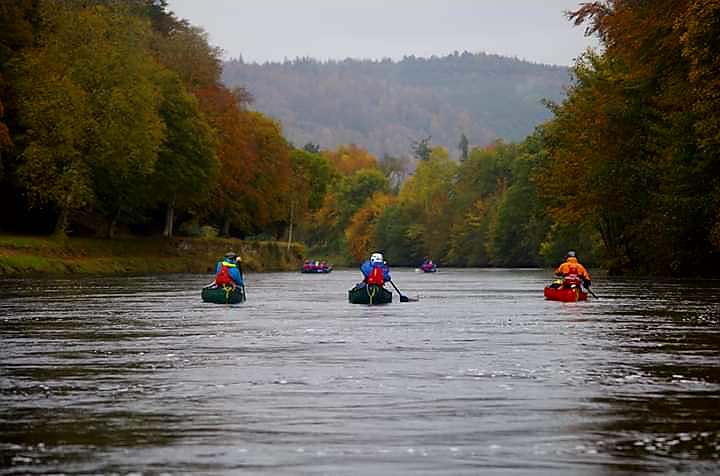
Physical activity gives you that feel-good endorphin boost and looking after your brain and body are intrinsically linked. Healthy body, healthy mind! The river is an outdoor gym: Charge those eddies, surf that wave, carry that portage, get out and scout, impromptu boater X… don’t just sit and float, get the most out of that endorphin boost!
Learning new skills can also massively boost self-esteem and confidence. It could be changing discipline, swapping kayak for canoe or creeker for slicy playboay. It could be learning to maintain and repair equipment, practicing rescue skills, identify wildlife or undertake a qualification to lead or coach. Through learning a new skill, we also learn to overcome challenges, use problem solving techniques and indulge in our interests!
Giving to others deepens our sense of connection and community. One of the greatest things you can give is time. Time to listen, time to share and time to talk: Follow up on that friend who had a particularly bad day, use shuttle time to catch-up and check-in, share those baked goods and share your knowledge and skills. Remember the best leaders don’t make themselves look good, they make others get better. Kindness and giving comes in many forms: Whether it’s a reminder that your bung is out, your deck isn’t quite on or your paddle’s upside down to volunteering as a coach or leader, being a club committee member or organising that next Alps trip; you are giving your time to make the magic happen! Finally, remember to be grateful, say thankyou and pass on that infectious smile.
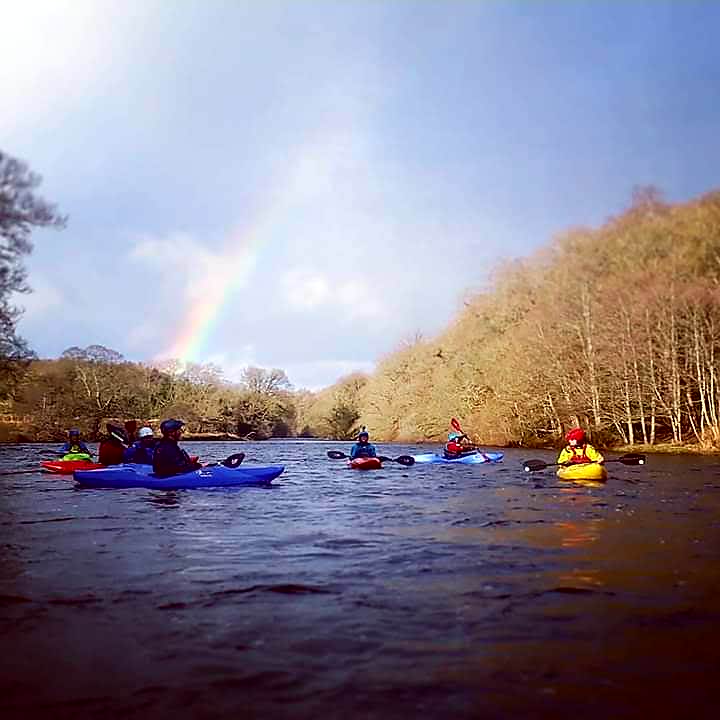
Mindfulness. You don’t have to be immersed on joga or meditation to feel grounded and present in the moment (although they are an excellent place to start!). We often get caught in the moment whilst on the river. Some of these moments are absolute calm; beautiful reflections, the colourful array of boats and spotting wildlife all give us moments of absolute belonging, relaxation and presentness. Equally, some moments are noisy and intimidating, yet we still feel present in the moment: Approaching the lip of a waterfall, making it through complicated water, catching that tricky eddy and rolling up after that being side-surfed in a stopper. In all of these moments we feel so alive. Don’t try to change those moments, just witness the feeling of being present, being calm, being scared or simply just being. Take note and gain a better understanding of yourself.
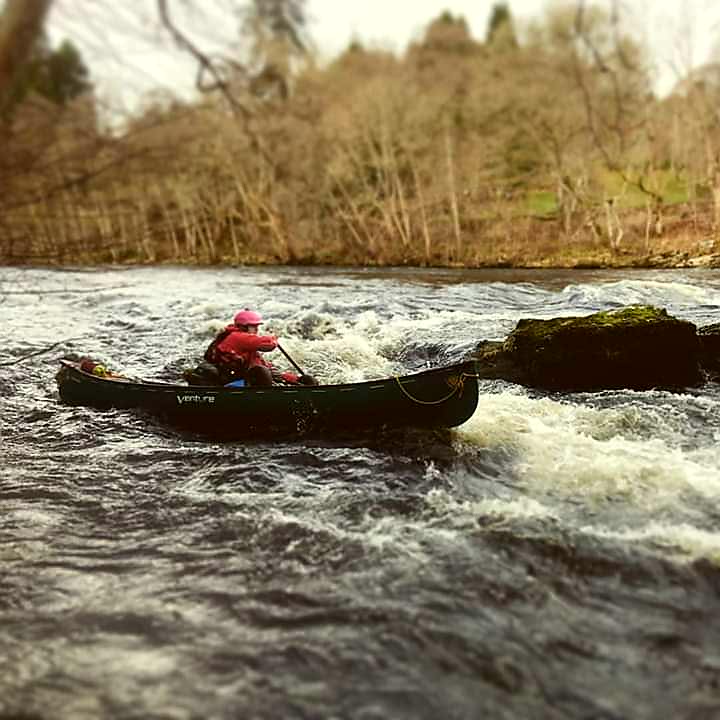
It would feel wrong to finish this article without a reminder to reach out and seek help. On the river, we give each other “a hand” with unloading and carrying boats, checking kit, choosing lines, setting up safety and generally looking after each other. When things go wrong we might self-rescue, empty the boat and get back on the water. Quite often though we need a little help from our friends to pick up the physical and emotional pieces including paddles and flasks, fixing bruised knuckles and loss of confidence. Sometimes we can’t help ourselves in a sticky situation and rely on a rescue by boat, line or live-bait. Indeed, we get stuck in a stopper and sometimes we magnificently loop out of it, sometimes we casually surf out and sometimes it takes good friends to help you out when you get tired or pull the deck. You might be the one with the throwline helping a friend escape the hole that they could never have exited by themselves. Never underestimate the power of that message, that phone call or that check-in or catch-up. Now more than ever, we need to look after each other, throw that throwline and start those conversations. Just like the river rescue, you could ultimately be saving someone’s life.
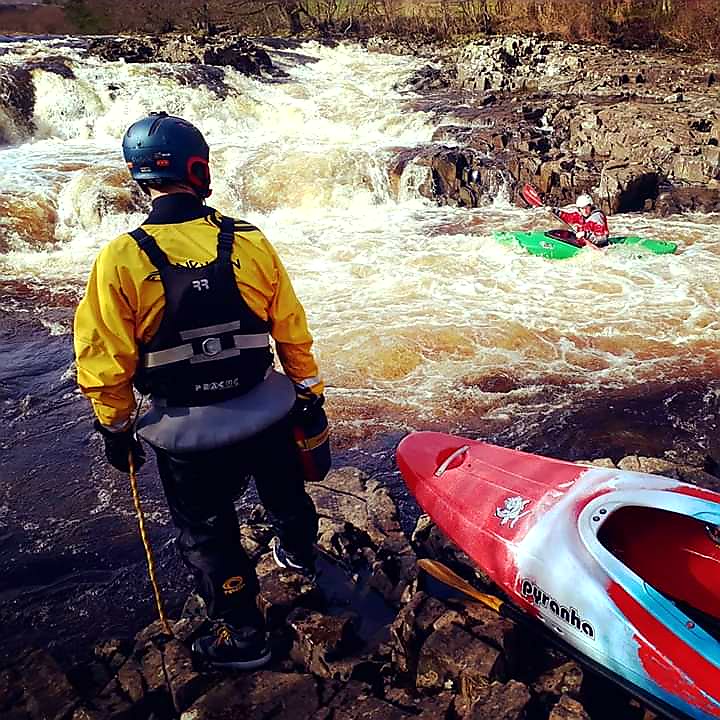
More information on help and support can be found:
https://www.mind.org.uk/
https://www.headstogether.org.uk/
https://www.nhs.uk/conditions/stress-anxiety-depression/improve-mental-wellbeing/
https://www.britishcanoeing.org.uk/news/2018/mental-health-awareness
Words by K. Macmillan
Photos by K. Macmillan and M. Simpson


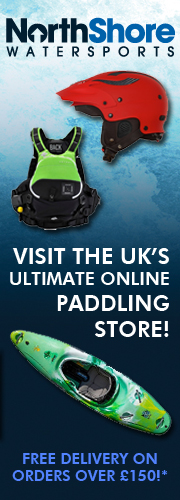
0 Comments
1 Pingback